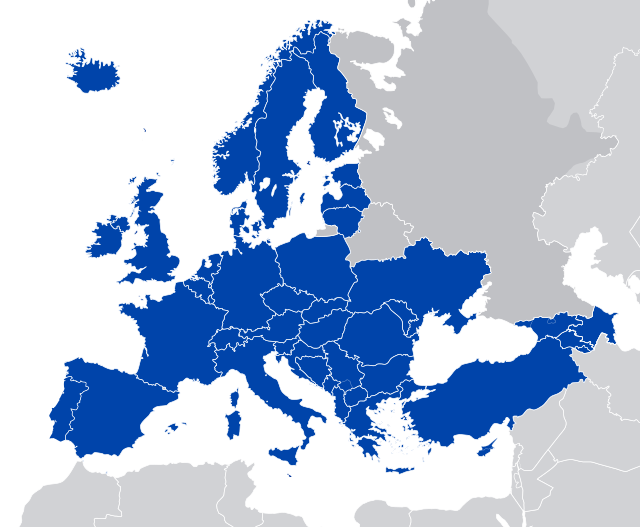In this article, we answer the main questions regarding the newly-formed European Political Community and the impact it may have in the international political scene.
World Leaders at the first meeting of the EPC in Prague, October 2022.
On the 9th of May of 2022, French President Emmanuel Macron proposed the creation of the European Political Community (EPC). It constitutes a new European organization to provide a space to “foster political dialogue and cooperation to address issues of common interest and promote security, stability and prosperity of Europe”.
More specifically, the EPC was created to bring European countries closer together, a step towards a possible European Confederation (an idea first put forward by François Miterrand in 1989) and to discuss matters like the ongoing economic and energy crisis or climate change. It has been outlined by the Czech prime minister Petr Fiala as an informal platform for leaders to meet and discuss issues of common interest, with less bureaucracy, procedures and regulations than the European Union.
This intergovernmental platform was proposed in the wake of this invasion and the consequent European Union application by Ukraine (as well as by Georgia and Moldova). Thus, and since the EPC represents a new European organisation separate from the EU, it may act as either a first step towards EU inclusion or an alternative to it, since it will be open for countries that want to have a larger voice in the wider European community, like the aforementioned ones or the Western Balkans, as Macron suggested. Either way, the EPC is posed to unite Europe to a greater extent and promote joint political action.
The Community was officially presented at the European Council in late June of 2022 and gathered for the first time on October 6th of the same year in Prague (image above) – representatives from 44 countries were present while Russia and Belarus were precluded and the USA are also not a part of the organization, highlighting the goal of the EPC of promoting European cohesiveness and limiting outside influence.
The EPC is planned to gather twice a year. The first meeting of the EPC already proved successful, contributing, for instance, to an improvement of relations between France and the UK, to a de-escalation of the tensions between Armenia and Azerbaijan (related to the Nagorno-Karabakh conflict), and to a strengthening of the European collective struggle against the on-going Russian invasion of Ukraine.

The announcement of the EPC divided opinions. Some countries saw the EPC as an attempt to halt EU enlargement and deny them full EU membership. Claims have also been made regarding the possibility that the EPC will be devoid of power and no actual decisions will be made or actions taken by this organization.
To counter these claims, the discussions at the European Council have assured that the EPC will not replace any existing European organizations, will respect the autonomy of the EU and will not hinder its enlargement. The success found at the first meeting also puts the community on the right track to have an actual significant impact on the European scene and promote cohesiveness and development.
What do you think about the European Political Community? Let us know below!
by YKW // 9 December 2022
We'd love to hear from you
Contact Us
Got any suggestion, recommendation or idea that you would like to share with us? Feel free!